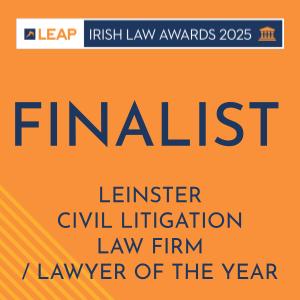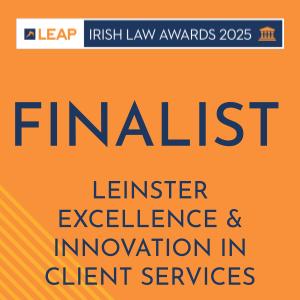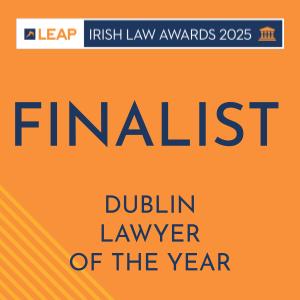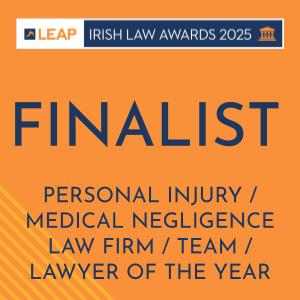An Acquired Brain Injury (ABI) is an umbrella term for a brain injury that was literally acquired during an individual’s life time. It is an injury to the brain that has occurred after birth and is not hereditary, congenital or degenerative. They can result in mild, moderate or severe impairments.
The term ABI incorporates Traumatic Brain Injuries (TBIs) and Non-Traumatic Brain Injuries.
Traumatic Brain Injury* (TBI)
TBIs are brain injuries that are caused by an external force. The brain is damaged when there is an impact to the head.
There are three main types of traumatic brain injury: closed head injuries, open or penetrating wounds and crushing injuries. A concussion is also classified as a traumatic brain injury. A closed head injury often results in more diffuse damage than an open head injury. Open head injuries are more vulnerable to secondary complications such as infection.
Common causes:
- Falling from a height
- Assaults
- Road traffic accidents
- Work place accidents
Non-Traumatic Brain Injury
Non-traumatic brain injuries occur as a result of an illness or a condition within the body, and not a result of a blow to the head.
Non-traumatic brain injuries can also occur as a result of medical negligence.
Common causes:
- Encephalitis
- Hypoxia (lack of oxygen to the brain)
- Tumours
- Hydrocephalus
- Vascular problems e.g. stroke, haemorrhage or an aneurysm.
The Consequences of a Brain Injury
Injuries to the brain are not always detected immediately after an accident or impact to the head, especially where there is no obvious external injury.
Each injury is unique, which means that symptoms can vary widely according to the extent and location of the damage to brain tissue.
The consequences and effects of an acquired brain injury are different for every individual. They depend upon the type, severity and location of the injury as well as the individual’s pre-injury personality and abilities. The extent of some changes may only become apparent as time progresses.
An acquired brain injury is often referred to as a “hidden disability” because its long-term problems are often in the areas of thinking and behaviour. They are not as easy to see and recognise as many physical disabilities.
Common changes:
- Cognitive changes e.g. memory difficulties, attention/concentration difficulties, planning challenges, perceptual difficulties, language difficulties etc.
- Physical changes e.g. tiredness, headaches, movement, coordination and balance (such as dyspraxia), speech and swallowing (such as dysarthria or dysphagia), seizures, incontinence etc.
- Behavioural and emotional changes e.g. agitation, personality change, anger and irritability, impulsiveness and disinhibition including sexual disinhibition, motivation, depression, loss of control, selfishness, lack of awareness of injury, denial etc.
-
It is crucial to remember that every brain injury is unique to the individual and the consequences for the individual’s family members & loved ones vary greatly.
Specialist Legal Support
Acquired brain injuries are injuries that lawyers can be involved with.
Suffering from a brain injury can be devastating not only for the person who was injured, but also for that person’s loved ones. It is often the case that the injured person was previously the sole or main provider in their home and they are now suddenly incapacitated and left without an income. Importantly, and aside from the sudden and unexpected financial burden the injury has created, it is often the case that the once independent person is now reliant on their family members for their care needs. This can place both a mental and physical toll on all involved.
It is therefore important that you engage solicitors who have a full understanding of the nature of brain injuries and the impact they have both from the medical side of things and in terms of how they can affect the whole family.
Your solicitors must know who the leading experts are and be able to competently instruct them with all the relevant details so that you can ultimately obtain meaningful compensation to help safeguard your future and to enable you to live a more independent life.
The following list is an example of some of the medical experts that a brain injury solicitor might engage to help build your case:
- Consultant neurosurgeon
- Consultant neuroradiologist
- Consultant neurologist
- Senior Clinical neuropsychologist
- Consultant in rehabilitation medicine
We at McMahon Goldrick Solicitors, understand that clients who have suffered from a catastrophic brain injury have very specific needs and concerns. We purposefully maintain a very low number of files so that individual attention can be given to each client.
More Info on Acquired Brain Injuries
The Brain Lobes
With an acquired brain injury, it is often the case that more than one lobe is injured giving rise to an overlap of difficulties.
Frontal lobe: deals with attention, decision making, emotional, social, sexual control, expressive language, verbal expression, judgement, spontaneity, problem solving, motivation, motor integration, voluntary movement, sequencing.
Temporal lobe: deals with behaviour, face recognition, short term memory, receptive language, language comprehension, musical awareness, selective attention, object categorisation, locating objects.
Parietal lobe: deals with academic skills, awareness of body parts, eye-hand coordination, tactile perception, spatial orientation, object naming, right, left organisation, visual attention.
Occipital lobe: deals with the perception and recognition of printed words, visual perception, visual processing.
Cerebellum: deals with balancing and equilibrium, eye movement, coordination of voluntary movement, gross and fine motor coordination, postural control.
Brain stem: deals with arousal and sleep regulation, balance and movement, autonomic nervous system (heart rate and breathing), level of alertness, swallowing food and fluid.
The Glasgow Coma Scale (GCS)
When considering a possible brain injury case, solicitors will look out for the Glasgow Coma Scale in the medical records.
The GCS is a simple method to assess how significant a head injury is in anyone over the age of 5 years old. It is used to objectively describe the extent of impaired consciousness in all types of medical and trauma patients
It divides into three parameters;
- E: Best eye response
- V: Best verbal response
- M: Best motor response
Best eye response:
1 = no eye opening
2 = eye opening to pain
3 = eye opening to sound
4 = eyes open spontaneously
Best verbal response:
1 = no verbal response
2 = incomprehensible sounds
3 = inappropriate words
4 = confused
5 = orientated
Best motor response:
1 = no motor response
2 = abnormal extension to pain
3 = abnormal flexion to pain
4 = withdrawal from pain
5= localising pain
6 = obeys commands
The individual patient could be anywhere in between on the scoring mechanism. A total score of 15 is very reassuring and the lowest score of 3 could be devastating.




